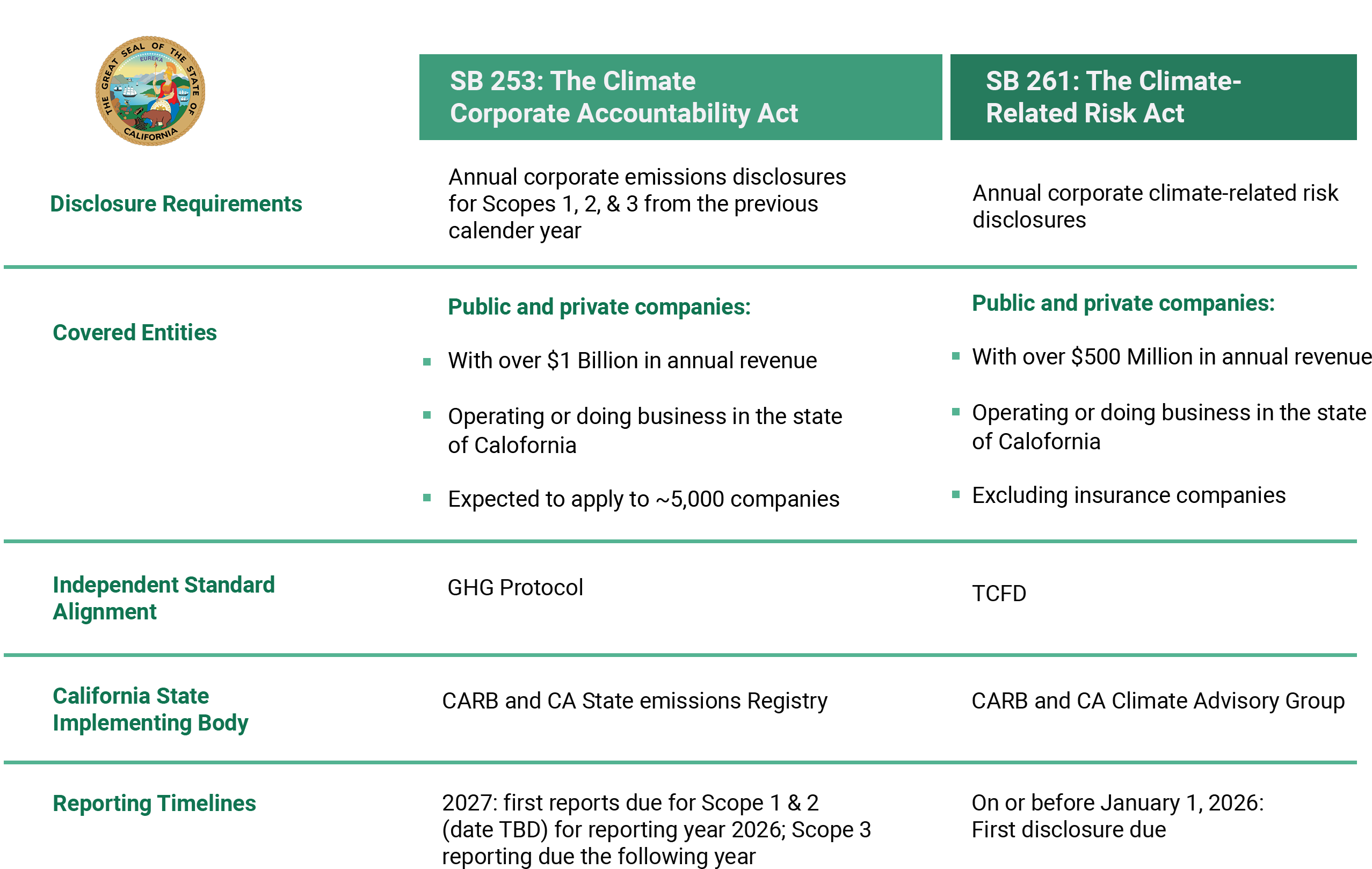California Climate Disclosures
Compliance laws and best practices for asset-heavy industries.
California’s Climate
Disclosure Laws - An Overview
On October 7th 2023, California Governor Newsom signed the first-of-its-kind legislation that would require Scope 1, 2, & 3 disclosure from all major corporations operating within the State. California Senate Bill 253, or the Climate Corporate Data Accountability Act, requires both public and private businesses in California with revenues greater than USD 1 billion to report all direct and indirect emissions, beginning in 2026 (for the year of). Also signed was its partner bill SB 261, the Climate-Related Financial Risk Act which requires risks associated with climate phenomena to be reported by businesses with over $500 million in revenue, also beginning in 2026. The combined bills create a climate accountability package designed to improve transparency, standardize disclosures, align public investments with climate goals, and raise the bar on corporate action to address the climate crisis.




